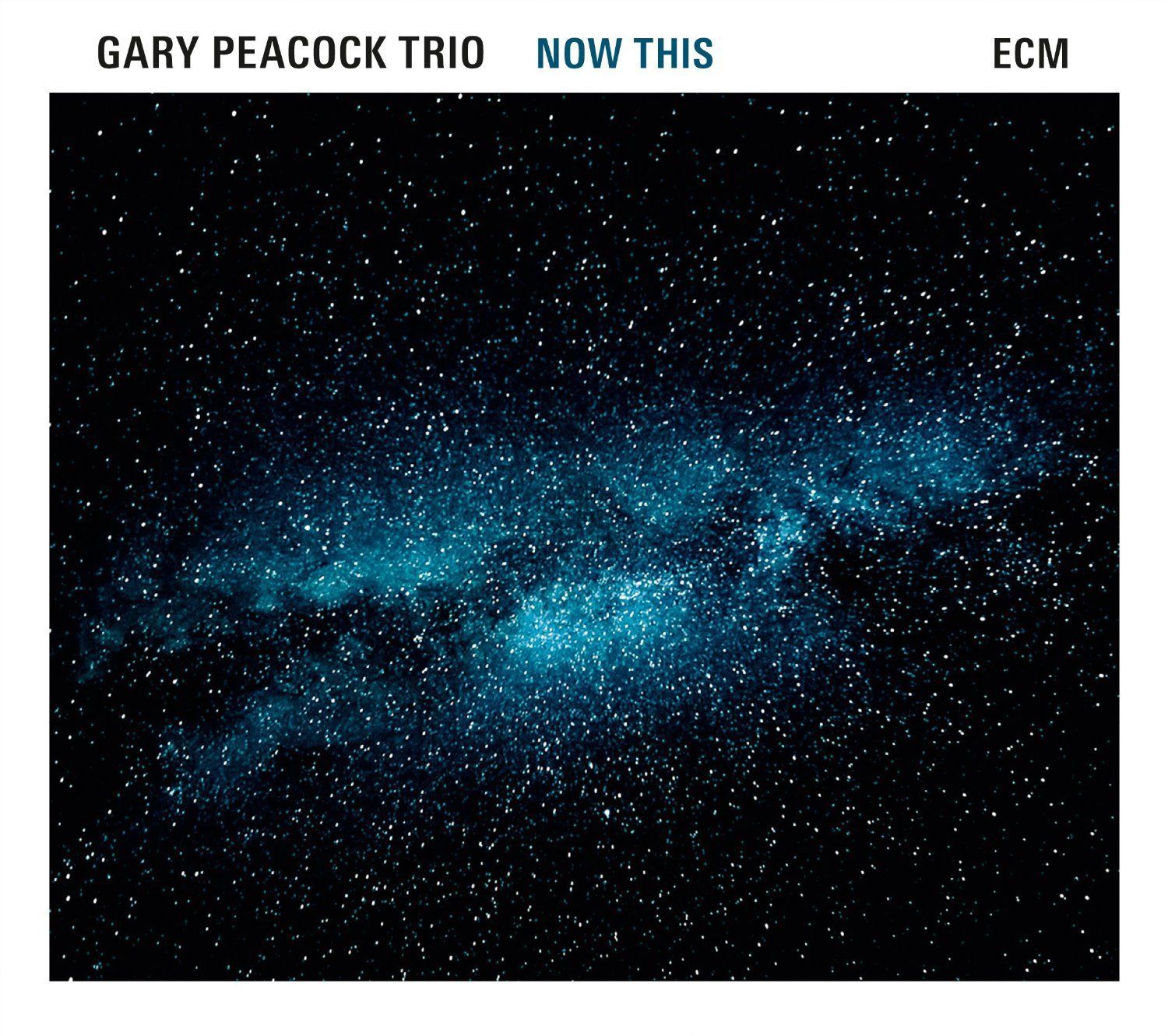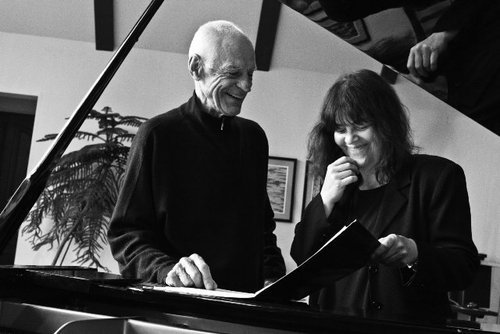Keith Jarrett Standards trio bassist Gary Peacock turns 80 on 12 May, and Now This is released the day before in Britain and Ireland. It is endowed with fabulously thunderous sound, the doyen of European jazz recording engineers, Jan Erik Kongshaug, responsible, and the 11 tracks were recorded at Rainbow in Oslo, with Manfred Eicher producing.
Peacock goes back almost to the beginning of ECM, appearing on an early label classic Paul Bley with Gary Peacock. And earlier in the 1960s he played a good deal with Albert Ayler. In the intervening years before the Standards trio came along 20 years later Peacock had worked with some of the cream of the avant garde scene performing, recording with Barry Altschul and Bley extensively. Bringing the story up to date recent releases featuring his work include the gorgeous Azure released in 2013 and reviewed below.
Gary Peacock/Marilyn Crispell Azure ECM **** If friendships and musical associations are about the ‘now’ and the ‘then’ Azure draws this sharply into relief with a burning intensity. The ‘then’ may have been the pairing of Peacock and Crispell with the late Paul Motian; the ‘now’, a music of risk-taking adventure and contemplation in equal measure. It’s also quite a moving album at times, and Crispell’s tune ‘Waltz After David M’ is just beautifully conceived within a post-bebop piano timeline that journeys back to Bill Evans but also reveals a significant compositional voice at play. There are goodbyes and lullabies, colours and dances on Azure, the duo performing tunes they each composed individually or in three cases, together. Crispell used to be a somewhat severe pianist – I’m thinking of the marvellous Kitchen Concert trio set for Leo recorded in the late-1980s – but Azure taps an elegiac sense with some tenderness on the lovely ‘Goodbye’. Listening to Peacock here is a wholly different experience to hearing the bassist with Keith Jarrett and Jack DeJohnette, as on the recent Standards trio Lucerne live album Somewhere. The anti-grammar of the tunes on Azure, the role of Peacock as an equal soloist, and the radical conception of musical freedom they share make the experience of listening to him very rewarding. Azure challenges the listener with an accessible familiarity or so it seems; but it’s above all an album that values the mystery of experience, the seeking and the sought.
For this new release, recorded last summer, instead of a duo, and appearing with a very different pianist to Marilyn Crispell who is more of an obvious avantist than Marc Copland even if he is still acutely attuned to a highly abstract sensibility, with Joey Baron sounding at maybe his most Paul Motian-like ever, the tunes have a brittle stateliness to them, the tonal qualities of the instrument almost exaggerated, progress never overhurried: the three in solemn contemplation.
All three contribute compositions, the only non-original is Scott LaFaro’s ‘Gloria’s Step’. Even though it is a piano trio in the sense that it is factually piano-bass-drums the album doesn’t sound like one at all. The bassist-leader’s role is robust and convincing even if the planets don’t always completely align on every piece. However, the monumental pendulum-like movement of Peacock original ‘Vignette’ towards the end would be the piece to turn to for some small proof of Peacock’s majestic power and where the trio knit best of all, the shadowy interplay of the deep noble tones of Peacock drawing out Copland that bit more even though his diffidence and poeticism is appealing throughout. ‘Requiem’ has a vastness to it at the end only belied by its brevity and indeed Now This thrives on succinctness, no note is wasted: the tolling opening piano notes of ‘Shadows’ much earlier providing an ominous atmosphere that the trio know how to project in all their uncertainty and mystery of suggestion. SG

